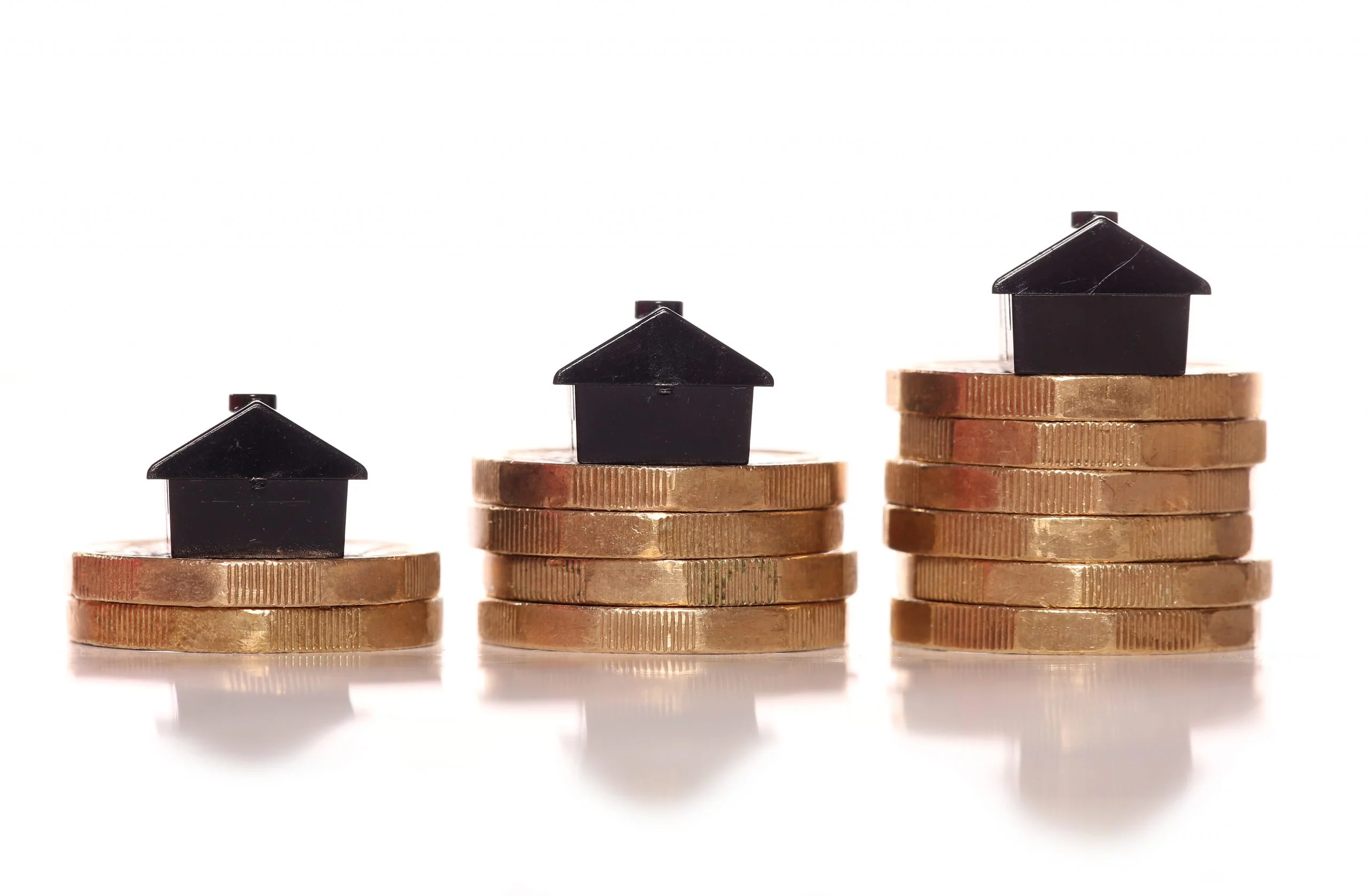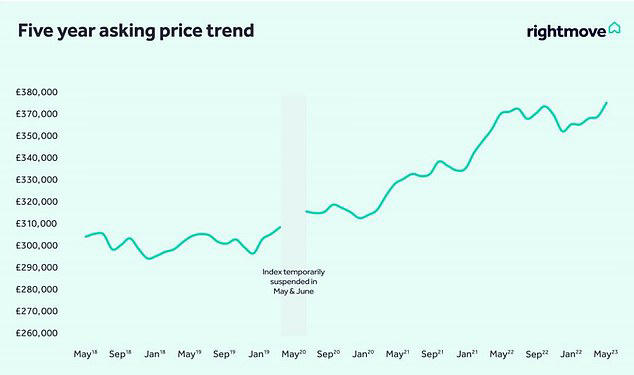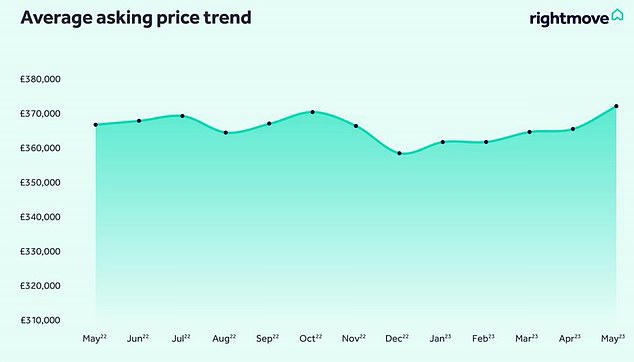Asking prices for British homes rose in May by more than in any other month this year as a better economic outlook and steadier mortgage rates offset the impact of the Bank of England's interest rates rises, property website Rightmove said.
Earlier this year, British house prices were forecast by sector analysts to fall by as much as 15% by mid-2024. But since then the economy has proved to be more resilient than expected and has so far avoided predictions of a recession. Borrowing costs have eased from their peak after former prime minister Liz Truss's "mini-budget" in September but they remain higher than their level immediately before the turmoil in financial markets in the autumn. Rightmove said mortgage rates had been stable on a week-to-week basis.
The BoE hiked Bank Rate by a quarter-point to 4.5% earlier this month to help bring down inflation which was running at 10.1% in March.
The Resolution Foundation, a think tank, has estimated that 1.6 million British households are yet to face an average increase of 2,300 pounds in their fixed-rate mortgage bill over this year and next year as those deals mature.
Property asking price bounce shows signs of recovery, says Rightmove
- Boost adds £6,647 to the average property asking price as buyer demand rises
- First-time buyer demand is up 6% compared to pre-pandemic levels
- Regionally London saw the greatest price growth over the month
The property market is showing signs of recovery, with confidence on the rise among buyers and sellers, according to Rightmove.
The property listing giant said the average asking price of newly-listed homes climbed 1.8%t in May to hit a record £372,894, but it added that buyers also seemed more optimistic. Buyer demand also saw a 3% lift compared to the same period in 2019 as the mortgage market continued to stabilise after the rapid rate rise at the end of last year.
The asking price monthly growth is the biggest so far this year, significantly higher than the historic average for the month of 1 per cent, and means the average home price tag is up £6,647, the property website says.
Prices dipped late last year as the market was hit by a sharp increase in mortgage rates
© Provided by This Is Money
The increase in confidence has been aided by mortgage rates easing, although they remain far higher than they were in previous years. An average 5-year fixed for an 85% loan-to-value mortgage is now 4.56%, compared to 5.89% last October. Lenders offered cuts in February, when rates dropped to 3.75% and ignited hopes of a rates war to push down prices, but have since risen to a more stable level between 4 and 5%.
The top rates appear to have settled at about this level despite successive base rate rises. For those looking for a mortgage there are still deals available below 4%, but only just. At the same time, the discount from asking price to agreed sale price has 'steadied' to an average of 3.1% in line with 'normal market levels'.
Tim Bannister, Rightmove's director of property science, said, 'this month's strong jump in new seller asking prices looks like a belated reaction and a sign of increasing confidence from sellers, as we'd usually see such a big monthly increase earlier in the spring season. One reason for this increased confidence may be that the gloomy start-of-the-year predictions for the market are looking increasingly unlikely. What is much more likely is that the market will continue to transition to a more normal activity level this year following the exceptional market activity of the pandemic years."
However, Bannister warns, "that the market is still 'very price sensitive' and sellers must be careful not to overprice and then reduce as agents are reporting realistically priced new instructions are selling best."
May saw the highest price growth this year taking the average asking price to a record high
© Provided by This Is Money
As the market recovers first-time buyers are leading the way as demand from the group sits at 6% higher than pre-pandemic levels. Likewise, second stepper demand is 3% higher. On average first-time buyer properties are now taking 53 days to sell, up from 35 days a year ago. Second stepper properties are selling in 52 days compared to 28 last year.
However, larger properties are struggling because of overconfidence at the top of market taking 67 on average to agree a sale, up from a 35-day average this time last year. Bruce Patterson, managing director at Corumin Ayrshire said, "good homes in key residential areas are still attracting a lot of demand and selling quickly, and there is still an undersupply of homes for sale across all price points. Accurate initial pricing remains key, and we're seeing more sellers set competitive and realistic price expectations for the current market which also makes any overpriced stock stand out. We're still seeing a continuation of people relocating from cities and urban areas to coastal areas, where they make get more space and a bigger property for their budget."
Average stock per agent ticked up in April rising to 47 properties from 45 in March. Regionally London saw the greatest price growth with the average property rising by 2.8% over the month to £696,477 in May. In contrast prices fell by 2.3% in the North East, the only place to see negative growth over the month.
ONS House Price Index
On 24 May, ONS published its March House Price Index, which noted that “average UK house prices increased by +4.1% in the 12 months to March 2023.” This was down from the +5.8% reported last month, but noticeably stronger than the March estimates published by Halifax, Nationwide and Rightmove. (Interestingly, Zoopla’s March figure was also +4.1%, so it appears to have been the most accurate among the indices published by UK lenders and estate agents.)
As ever, the figures show substantial variation by state and by region. Of the English regions, the strongest performer in March was the South West, which saw average gains of +5.4%. The North West ranked second overall, delivering growth of +5.2%, followed by the East Midlands at +4.9%. All other regions saw year-on-year growth of between +3.4% and +4.6%, with the exception of London, which delivered just +1.5%.
Findings & extracts:
- The average UK house price was £285,000 in March 2023, which is +£11,000 higher than 12 months ago, but -£8,000 below the recent peak in November 2022.
- Average house prices increased over the 12 months to £304,000 (+4.1%) in England, £214,000 in Wales (+4.8%), £185,000 in Scotland (+3.0%) and £172,000 in Northern Ireland (+5.0%).
- On a monthly basis, average values fell. They dipped by -1.2% in March 2023, following a decrease of -0.1% in February 2023.
- On a seasonally adjusted basis, the average UK house price decreased by -0.9% in March 2023, following an increase of +0.4% in February 2023.



